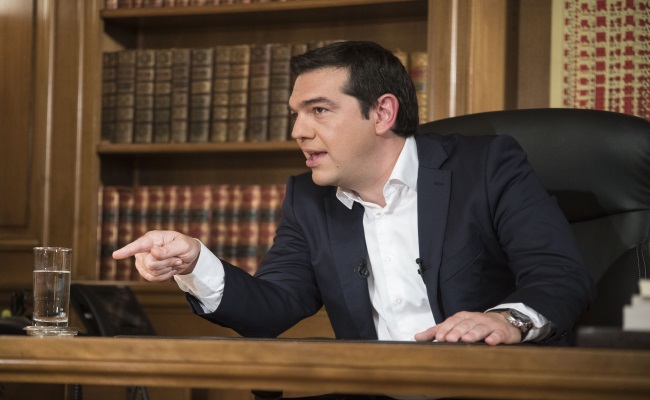By MAÏA DE LA BAUME AND TARA PALMERI, politico.eu
EU politicians hailed Sunday’s election victory for Alexis Tsipras as a sign that Greece is serious about implementing its latest bailout deal.
Tsipras’s leftist Syriza party captured 36 percent of the vote, and will form a coalition government with the Independent Greeks.
The contest was watched closely in Brussels, where many are hopeful that Tsipras’ government will abide by the terms of the €86 billion bailout package negotiated in July after months of difficult talks with the country’s European creditors, just narrowly keeping Greece from leaving the euro.
“I hope that the elections will now provide for the political stability necessary to face all the challenges at hand,” said European Council President Donald Tusk. “Many of the biggest challenges facing the European Union as a whole are the same as those facing Greece as a country, such as the refugee crisis and the creation of sustainable growth and jobs.”
European Parliament Martin Schulz congratulated Tsipras but said now it was time for the Greek government “to deliver.”
In an interview on France Inter radio, Schulz said he hoped that Tsipras would be strong enough to reform his country. “If he overcomes cronyism, Greece has a chance,” Schulz said.
“It is a strong victory and a personal one for Mr. Tsipras,” said Roberto Gualtieri, chairman of the European Parliament’s Economic and Monetary Affairs Committee. “It is going to give stability to Greece. Now the challenge will be to implement the agreement, support growth and social fairness.”
Gianni Pittella, the president of the Progressive Alliance of Socialists and Democrats group in the Parliament, called on the “European Union and its Member States to act together and cooperate with the new government, showing practical solidarity in its efforts for recovery, jobs and social justice.”
Pervenche Berès, a French member of the S&D group, said that by voting for Syriza, the Greeks had asked for a re-examination “from top to bottom” of Europe’s economic governance. Berès is one of several MEPs calling for an increased role for the European Parliament in oversight the eurozone.
Greece’s creditors, including the International Monetary Fund, the European Commission and the European Central Bank, have agreed to a third bailout in return for reforms, including tax hikes and a pension overhaul. They are expected to assess Athens’ progress next month.
Commission spokesman Margaritis Schinas told reporters Monday the EU executive was “particularly encouraged by the ample representation in the new Greek parliament of pro-European political parties defending the need of a strong Europe in within the euro area.”
On Sunday, Jeroen Dijsselbloem, who as president of the Eurogroup clashed often with Greek officials during the summer bailout negotiations, congratulated Tsipras on Twitter and said he looked forward to working closely with Athens on “ambitious reform efforts.”
Other EU politicians who have been less enthusiastic supporters of Tsipras said Greece’s new government will have to prove its commitment to reform.
Manfred Weber, president of the center-right European People’s Party group, had been a supporter of Tsipras’ opponent, New Democracy party leader Vangelis Meimarakis, saying he had “the skill and experience” to lead Greece. After Tsipras’s victory, Weber called on the newly elected prime minister to “cooperate with the other constructive and democratic parties in Greece.”
Sophie in ‘t Veld, from the Alliance of Liberals and Democrats for Europe, said of Tsipras: “I hope that he can finally start to govern the country, and get it back on track after months of hassle.”
But in ‘t Veld added that she regretted that Tsipras had chosen to form a coalition with the “extremists” of the Independent Greeks party. “There are extremists in many other countries in Europe, we can do without them,” she said.
Syed Kamall, leader of the Europe of Conservatives and Reformists group, said: “In six years the Greek people have voted in five general elections and a referendum and yet every time they have been required to implement identical policies. This election changes very little and Mr. Tsipras now has the very tough task of delivering the terms of the bailout deal that he agreed.”









